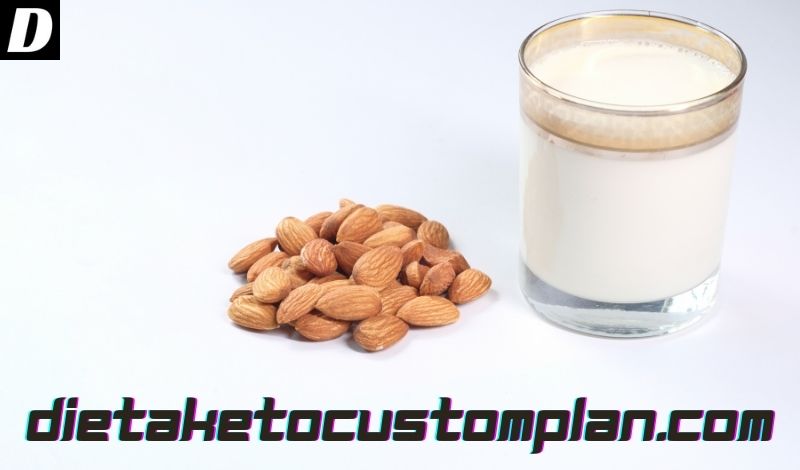Low carb diets are very popular worldwide. In fact, carbohydrate-restricted diet plans have several health benefits.
Reducing carbs intake with a low carbs diet is an effective way in reducing body weight and, in patients with type 2 diabetes. It is also able to improve glycemic control (1).
On the other hand, several people abandon foods rich in fiber during a low carb diet plan. In long term, it may cause several side effects because of fiber deficiency.
Like carbs, fiber is also an important macronutrient with multiple health benefits. The important benefits of adequate dietary fiber consumption are
- Boosting weight loss drive in adults with overweight or obesity consuming a calorie-restricted diet (1).
- Prevention of gallstone disease (2).
- Improvement of the gut microbiota metabolism of chronic kidney disease patients (3).
- Prevention of type 2 diabetes by controlling the HBa1C range (4).
All of these health benefits can be achieved by the consumption of foods that are low in carbs and high fiber. The following foods are high in fiber and low in carbs.
High Fiber Low Carb Fruits
Fruits are a good source of dietary fiber. However, the majority of health-friendly fruits are high in carbs. So, people often find it difficult to identify the low carb fruits that are a rich sources of fiber.
Here we have covered the nutrient-dense fruits that fulfill both criteria of low carb and high fiber.
Avocado
Avocados are low carbs fruits with high fiber content. Moreover, highly nutritious avocadoes contain calcium, magnesium, and phosphorus.
It is also a rich source of potassium and vitamin A. Avocadoes are widely used in fruit mixes, salad, and smoothies.
A 100 gram serving of avocado contains 8.53 grams of total carbs, 6.7 grams of fiber, and 1.8 grams of net carbs (5).
Lemons
Lemons are keto friendly fruits with high fiber. This low carb fruit is a rich source of nutrients like potassium, vitamin C, and folate.
Vitamin C is famous for its benefits over oxidative stress. Moreover, vitamin C prevents scurvy and is also able to donate electrons (6).
The standard serving size of 100 grams of lemons contains 2.8 grams of dietary fiber and 9.32 grams of carbohydrate. The net carbs of lemons are 6.5 grams after deduction of dietary fiber (7)
Raspberries
Raspberries are widely consumed low carb fruits. Furthermore, this healthy fruit is a rich source of dietary fiber, calcium, magnesium, potassium, and vitamin C.
Raspberries are mainly consumed with side dishes like fruit juice, fruit mix, etc. These dishes are full of nutrients and provide multiple health benefits.
You will get 11.9 grams of total carbs, 5.4 grams of net carbs, and 6.5 grams of dietary fiber from 100 grams of raspberries (8).
Starfruit
Starfruit or carambola is a high fiber and low carb fruit. This star-shaped fruit contains a high amount of potassium and vitamin C.
Moreover, the vitamin C micronutrient of star fruits is equal to almost half of the daily requirement or 50 percent of DV. Beverages prepared by mixing starfruits and avocados are delicious and can be consumed with a daily low carb meal plan.
A 100 gram sized starfruit contains 6.73 grams of total carbs and 3.9 grams of net carbs. It also provides 2.8 grams of dietary fiber (9).
Blackberries
Blackberries are among one of the most popular carb-restricted fruits. This low carb fruit is rich in dietary fiber also. Moreover, blackberries are a great source of vitamin C, potassium, and folate.
It is high in vitamin A also. Vitamin A is a top-rated natural anti-wrinkle agent. Furthermore, adequate vitamin A consumption can reduce the risk of ovarian cancer (10, 11).
100-gram serving size of blackberries contains 4.3 grams of net carbs, 9.61 grams of total carbs, and 5.3 grams of dietary fiber (12).
Coconut
Everyone is familiar with coconut oil, a byproduct of coconut. Moreover, the other three byproducts of coconut i.e coconut milk, coconut water, and coconut cream are widely consumed.
Like the majority of keto fruits, coconut is also low in carbs and fiber rich. Furthermore, coconut is full of healthy minerals like magnesium, phosphorus, and potassium.
However, all coconut byproducts except coconut water are high in saturated fat. Daily consumption of more than 30 grams of saturated fat may cause constipation.
That’s why you should limit your daily coconut consumption as surplus coconut consumption can cause constipation.
A 100 gram serving of coconut meat provides 15.2 grams of total carbs, 9 grams of fiber, and 6.2 grams of net carbs (13).
Orange
Orange is a citrus fruit that is rich in fiber. Also, the moderate low carbs of orange make it perfect for a carb restricted diet.
It is also rich in essential micronutrients, especially potassium and vitamin C. A higher intake of potassium aids in (14)
- Lowering blood pressure in individuals with raised blood pressure
- Reduction of cardiovascular disease mortality
- Management of hypercalciuria and kidney stones
- Decreasing the risk of osteoporosis
On the other hand, vitamin C has benefits over breast cancer cells. It also reduces oxidative stress, boosts immunity, and prevents scurvy (15, 16).
Delicious oranges are eaten raw. They can be eaten as fruit mix and added to ice creams and desserts.
A 100 gram-sized orange contains 9.1 grams of net carbs, 11.5 grams of total carbs, and 2.4 grams of dietary fiber (17).
High Fiber Low Carb Vegetables
Like fruits, there are several low carb vegetables that are rich in fiber. The low carb formula makes these vegetables keto approved also.
The top 8 high fiber vegetables that are fit for a carb-restricted diet are given below.
Asparagus
Asparagus is a delicious vegetable that can be added to multiple dishes. Highly nutritious asparagus are used in popular dishes like roasted asparagus with garlic sauce and asparagus salad.
Several essential minerals are found in asparagus. These include calcium, iron, copper, zinc, magnesium, potassium, phosphorus, and selenium.
As asparagus is high in fiber and low in carbs, it provides several health benefits.
As per studies, the very low carb component helps to reduce weight, especially in patients with type 2 diabetes. Also, the high fiber nutrient may be able to prevent type 2 diabetes (18, 19).
A 100 gram serving of Asparagus contains (20)
- Fiber: 2.1 g
- Carbohydrates: 3.88 g
- Net carbs: 1.78 g
Bamboo Shoots
Bamboo shoots are perfect to add to any carb-restricted diet. Furthermore, it is also high in fiber. Both of these essential nutrients aids in weight control.
Although bamboo shoots are keto-friendly, they can not be eaten raw. This healthy vegetable contains a little amount of cyanide, that’s why boiling is a must before consumption.
Bamboo shoots are also a good source of potassium and phosphorus. Both potassium and phosphorus are considered essential minerals for maintaining good health.
Foods high in potassium may slow down the progression of renal disease. On the other hand, phosphorus has beneficial effects on bone health.
100 g serving of bamboo shoots provide (21)
- Fiber: 2.2 g
- Carbohydrates: 5.2 g
- Net carbs: 3 g
Broccoli
Broccoli is a common family member of cruciferous vegetables. Like other keto vegetables, broccoli is also low in carbs.
Moreover, fiber rich broccoli helps to increase the stool bulk and prevents constipation. The high fiber component may prevent gallstones also(22).
Although broccoli can be eaten raw, cooked broccoli is consumed mainly. It’s because raw broccoli has a bitter taste.
Broccoli is a great source of vitamin C. In fact, a 100 gram sized broccoli can fulfill the daily requirement value or DV of this antioxidant.
A 100 gram serving of raw broccoli provides (23)
- Fiber: 2.6 g
- Carbohydrates: 6.64 g
- Net carbs: 4.04 g
Brussels Sprouts
Brussels Sprouts are one kind of cabbage. The edible buds of this nutritious green veggie are consumed with soup and salads.
Also, roasted brussels sprouts are a favorite dish of several people around the globe. Brussel sprouts are keto friendly i.e low in carbs.
Also, this tasty vegetable is a great source of dietary fiber. Dietary fiber aids in weight loss for obese people reduces the risk of constipation and type 2 diabetes.
Furthermore, brussels sprouts contain essential minerals like calcium, potassium, magnesium, zinc, iron, etc. Like broccoli, brussels sprouts are very high in vitamin C DV(90 percent).
Brussels sprouts contain the following carbs and fiber against 100 gram serving (24)
- Fiber: 3.8 g
- Carbohydrates: 8.95 g
- Net carbs: 5.15 g
Cabbage
Cabbage is a well-known green vegetable that is a great addition to any carb-restricted and high fiber diet plan.
Moreover, cabbage is a good source of both vitamins and minerals. It contains calcium, potassium, magnesium, iron, zinc, vitamin C, B1, B2, B6, A, E, and K.
The high concentration of vitamin K provides several health benefits. Vitamin K has anti calcification and anticancer properties. Also, it aids in bone-forming (25).
A 100 gram serving of raw cabbage provides (26)
- Fiber: 2.5 g
- Carbohydrates: 5.8 g
- Net carbs: 3.3 g
Carrots
Carrots are highly nutritious and healthy vegetables. Like other useful keto friendly vegetables, carrots are high in fiber and low in carbs.
Most people eat a cup full of raw carrots for maintaining a healthy lifestyle. The high nutrition value of carrots aids in several health benefits.
Firstly the low carb and high fiber properties of carrots may have benefits over healthy weight reduction. Also, both of these macronutrients are effective against type 2 diabetes.
100 gram sized carrot provides (27)
- Fiber: 2.8 g
- Carbohydrates: 9.58 g
- Net carbs: 6.78 g
Collard Greens
Collard greens are among the top source of high dietary fiber. It contains a high number of dietary fiber compared to other low carb vegetables.
This cruciferous vegetable provides numerous health benefits. Studies have shown that cruciferous vegetables especially Brassica specimens play antioxidative and chemopreventive roles (28).
As collard greens fall under the brassica family, the same benefits may be achieved by the consumption of collard greens.
A 100 gram serving of collard green provides (29)
- Fiber: 4 g
- Carbohydrates: 5.42 g
- Net carbs: 1.42 g
Eggplant
Eggplants or aubergines are fruit but counted in vegetable families. This fruit is a great source of useful nutrients.
Eggplants contain moderately high amounts of fiber, manganese, folate, and vitamin C. Niacin, vitamin K, iron, copper, and zinc are also found in eggplant.
Studies have shown eggplants may contain potent cardioprotective compounds (30). Moreover, the low carb components of eggplants may improve glycemic control of type 2 diabetics.
100 gram serving of eggplant contains (31)
- Fiber: 3 g
- Carbohydrates: 5.88 g
- Net carbs: 2.88 g
Final Thoughts
A carb restricted diet has several benefits. The most important benefit of low carb diet is to manage weight and control obesity for type 2 diabetics.
On the other hand, high fiber foods aids in type 2 diabetes control and weight loss. That’s why both of these nutrients are essential for maintaining a healthy life.
Moreover, low carb and high fiber fruits and vegetables are not only delicious but packed with other nutrients also. These essential nutrients aid in skin and bone health, diabetes control, and reduction of the risk of cardiovascular diseases.
That’s why it should be a wise idea to add low carb and fiber rich foods with a daily meal plan.



